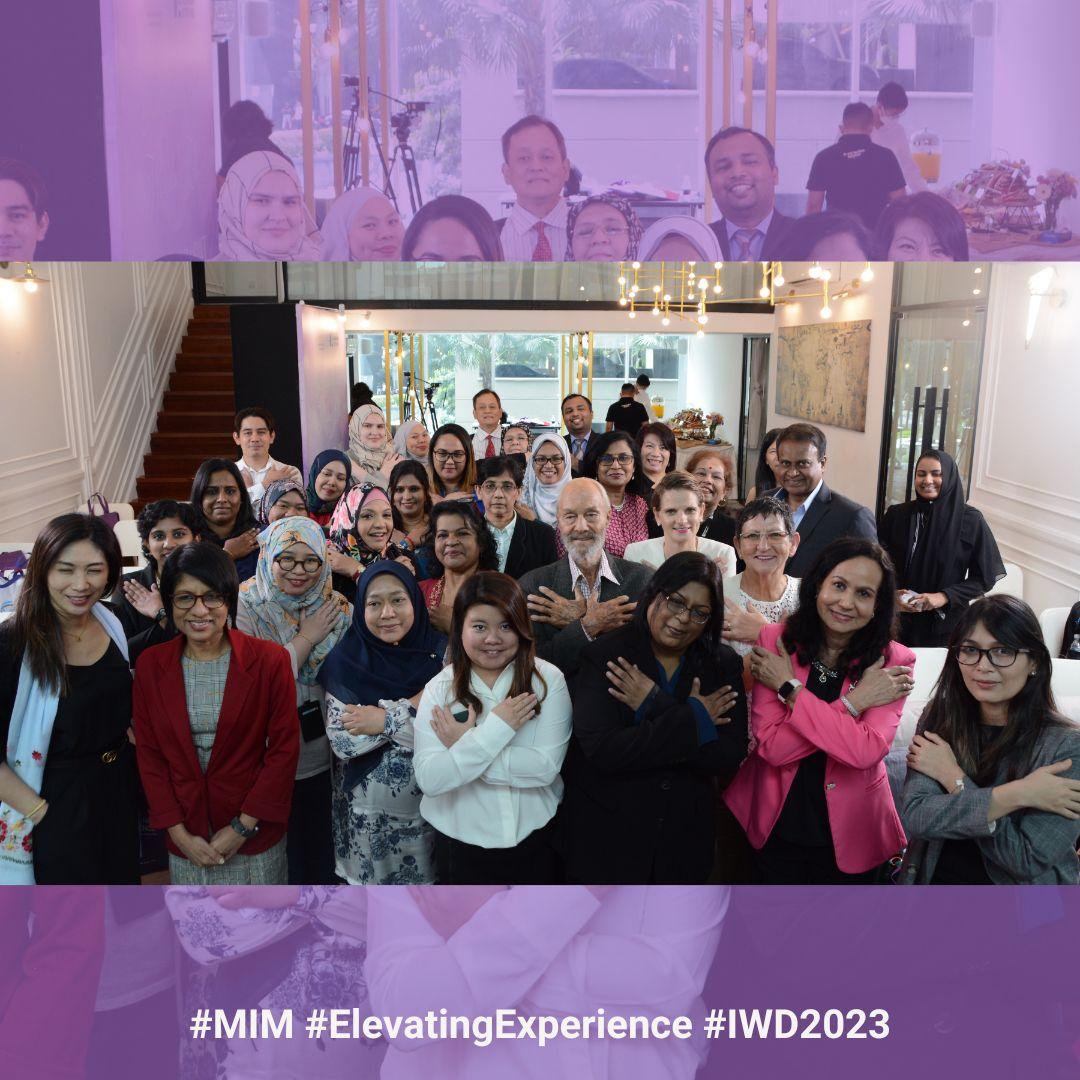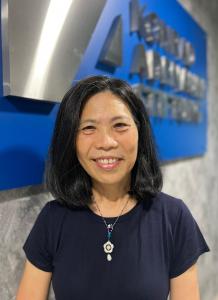In conjunction with International Women's Day, the Malaysian Institute for Management (MIM) and Konrad-Adenaeur-Stiftung Malaysia (KASMY) brought together leaders and changemakers for a crucial conversation on redefining innovation in women's leadership, workplace culture, and the economy.
International Women's Day (March 8) is a day celebrating the social, economic, cultural, and political achievements of women around the world. The day also marks a call to action for accelerating women's equality. IWD has occurred for more than a century, with the first IWD gathering in 1911 supported by over a million people. Today, IWD belongs to all groups collectively everywhere. IWD is not country, group or organisation specific. The Malaysian Institute for Management (MIM), a long-time partner of Konrad-Adenauer-Stiftung Malaysia (KASMY) have made a sustained joint effort to discuss important topics through our “Crucial Conversations” event series. In the spirit of International Women’s Day 2023, MIM declared that its mission is to develop motivated and inspired leaders who understand the importance of ‘Inclusivity and Diversity' and how it can make an impact on one's development.
Sharing their expert views and opinions, leaders from various backgrounds dive deep into some thought-provoking questions on the importance of embracing equity in the workplace, empowering women to combat corruption and how we can build towards that, and much more. Ms. Rahimah Beeve Ibrahim, Board of Director of the Malaysian Institute of Management stated in her welcome speech:
“This shift is about recognising that gender equality is not just a women’s issue. It's an issue that affects everyone, and it is everyone's responsibility to work towards creating a more equal and just world.’’
“Let us continue to push for change, to break down barriers, and to create a world where every woman can flourish”, she added. Ms. Rahimah also took the opportunity to highlight how men need to also understand and participate to promote gender equality. It is not about women taking over men's role in society. Instead, it is an effort to create an environment where all women can thrive as individual and collective, and where their rights and contributions are respected and valued.
Kicking off the discussion fueled by inspiration, Dato’ Hazimah Zainuddin, the Founder and Managing Director of Hyrax Oil Sdn Bhd, enthusiastically shared her journey from wife to a player in the interntional oil and gas industry. Under her leadership, Hyrax Oil began producing a broad range of lubricants from its own plant in Klang in 1995. Her astute business acumen has enabled Hyrax Oil Sdn Bhd to grow from strength to strength and the company now exports its petroleum products to more than 40 countries worldwide. Although women make up only 7 percent of the labour force in the industry, this did not prevent Dato’ Hazimah from being the only woman to venture into manufacturing transformer oils and lubricants. However, being a woman would not be the only challenge to succeed in this industry as she shared about the oversaturated nature of the local market, which forced her to challenge herself into overseas commercial activities. Due to her expertise and success in the business arena, she had been asked to present and speak in various national and international conferences, and to mentor rising career women through corporate training programmes. After an engaging and inspiration presentation, Dato’ Hamizah stated that women need to be brave, skillful and adaptive. Therefore, she now dedicates a significant amount of her time to advocacy for equal opportunities in male-dominated industries, gender-responsive policies and practices to make workplaces friendly for women to balance work and home demands, as well as create networks of support for women to excel in their professional lives.
“Hopefully one day, we can stop celebrating International Women’s Day because we are just there – we are just here!”, said Dr. Marcella Lucas during the panel session. She is the Managing Director of “Lead to Innovate”, a consultancy that specialises in Diversity, Equality and Inclusion (DEI) strategies for leadership and innovation. In her presentation, Dr. Marcella explained the difference between the concepts of diversity and inclusion, in an effort to highlight how employers can take the initiative to ensure they are fostering a safe, friendly and healthy organisational culture under their leadership. She provided three suggestions to take into consideration using the DEI approach. First, to be aware of one’s own biases and limitations. It is crucial for women to speak up for themselves and others at the workplace. Second, organisations must consider how they can integrate DEI values across all levels and not just at one-off events. They should avoid putting the burden of responsibility on women and minorities. Dr. Marcella emphasised on the importance for workplace leaders to proactively ensure the representation of women and other minorities as something that can happen almost immediately, as long as there is a commitment to DEI:
“If you are serious, allocate a serious budget.”
While such initiatives are necessary to promote the inclusion of women in the corporate sector, another element that requires attention is the matter of corporate governance and corruption. Cynthia Gabriel, one of Malaysia’s most prominent human rights advocate and anti-corruption specialist, shared that most programming actions pertaining to the rights of women and gender equality are not institutionalised or entrenched in legal and governance reforms. Cynthia reminded the audience that the matter of better procurement measures is the bedrock of good governance and policy implementation, especially in healthcare access, development and social security. She then explained about the correlation between gender equality, women’s rights and anti-corruption, a relationship that is often underrated in public discourses today. “It is about access to the abuse of power”, she says as she narrated how anti-corruption frameworks tend to exclude many instances where women’s right to dignity and integrity are violated such as extortion through acts of sexual harassment.
“Women leadership in good governance is crucial to development… [Yet], how many organisations stand by their employees for speaking up against their superior and abuse of power?”
Asks Geetha Rubasundram, a chartered accountant and academic specializing in financial integrity, discussed the matter of women leadership and their role in organisational corruption. With 21 years of experience in Malaysia and internationally, Geetha shared the numerous instances in her professional life where she had been ostracised for speaking up against violations of institutional integrity, facing threats of insubordination and career deterioration. This led her down to the path of writing a doctoral thesis on the issue, where she frames corruption as an institution in its own right. However, Geetha was quick to clarify that her approach is not intended to endorse corruption. Instead, it is meant to illustrate its significant impact on governance. “Although there is strong women leadership present in some sectors of Malaysia, international data shows women are underrepresented and face growing discrimination”, stated Geetha, as she cites findings from Sustainable Development Goals (SDG) evaluation reports made in the post-pandemic period.
According to the forensic accountant, there are only 28 countries where 30 women serve head of state or governments as of 19 September 2022. This reflects gender equality in highest positions of power will not be reached for another 130 years. Although the Malaysian government has demonstrated its commitment to ensure all boardrooms in the country will no longer be only male, Geetha questions whether this move is on the right path towards building a society free from corruption and gender bias. “Do women have a greater moral compass?”, she asks the audience. Geetha then proceeded to share the findings from a pilot study she conducted for her doctoral research, where it was revealed that women belonging to different age categories show different perceptions of the immoral nature of corruption. Some demonstrated knowledge of loopholes in the legal system to maneuver through, and suggest to swing either way depending on circumstances to their own professional advantage. In light of these revelations, Geetha emphasised on how policy and institutional reforms will need to make considerations of how acts of corruption may evolve as gender parity continues to be minimised in the coming years.




